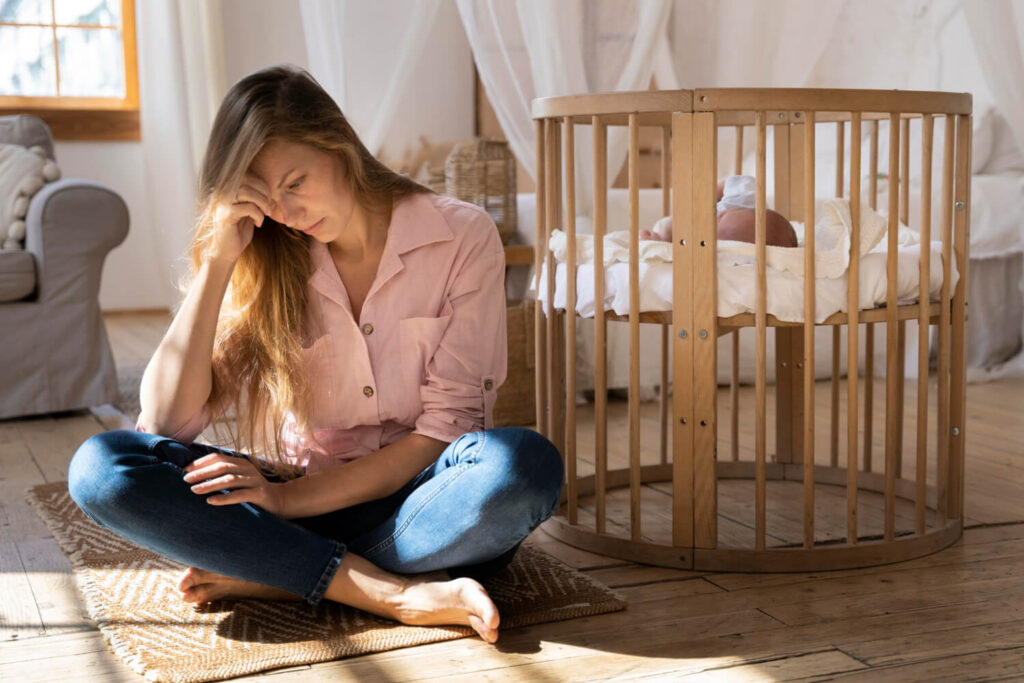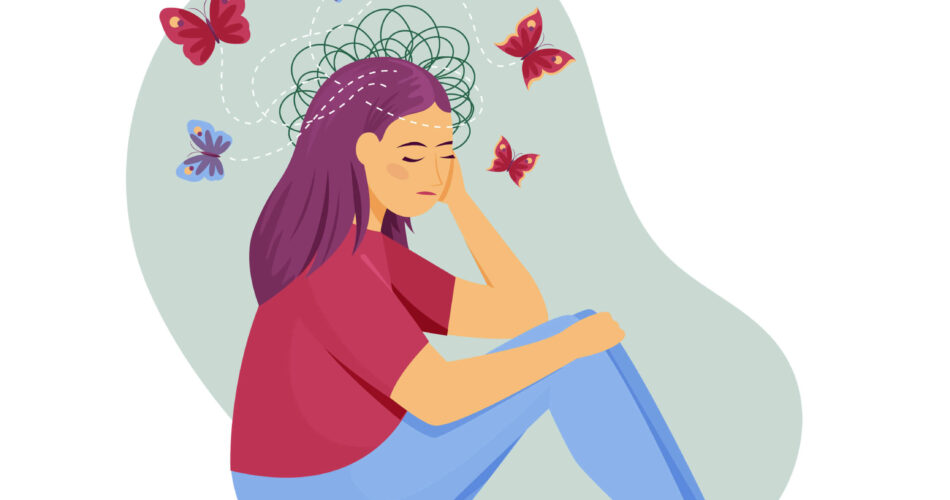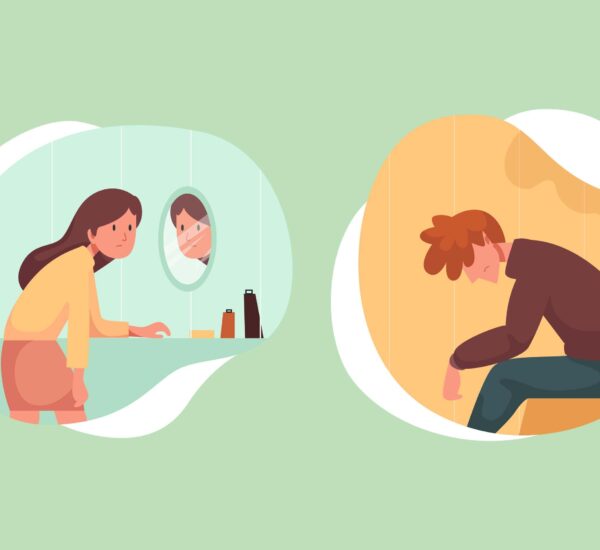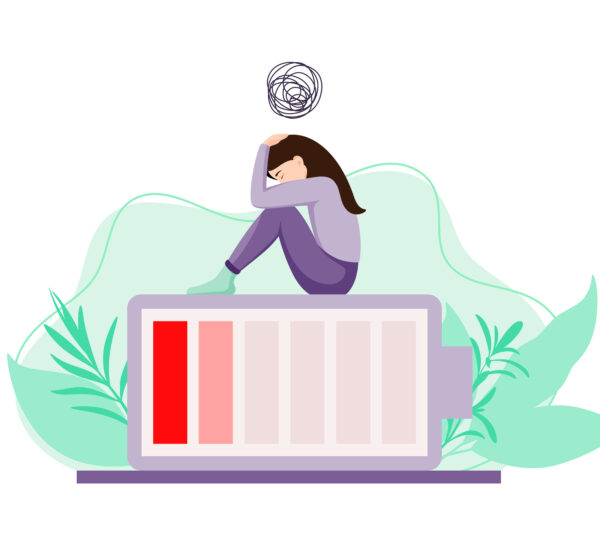One of the common mental health issues that individuals develop is depression. This condition commonly affects people of all genders, ages, and backgrounds. However, studies have shown that women are more likely to experience depression than men. To address this issue effectively, it is important to understand the gender-specific signs and symptoms of depression in women. By recognizing these signs, patients suffering from the condition can better manage their mental health.
If you know someone who is suffering from extreme sadness, this blog might provide the guidance they need. Discover the common symptoms of depression in women and understand how to utilize this info in achieving mental healing. Let’s begin!
Understanding Depression and Its Impact

Before we delve into the gender-specific symptoms of depression in women, let’s first establish a basic understanding of this mental health condition. Depression is more than just feeling sad or down; it is a complex illness that affects a person’s mood, thoughts, and behavior.
This mental health illness can manifest in various ways, and can have a significant impact on a person’s daily life. It often leads to feelings of sadness, hopelessness, and a lack of interest or pleasure in once enjoyable activities.
While depression can occur at any age, it typically first appears during adolescence or early adulthood. It is important to note that depression is not a sign of weakness or a character flaw, but rather a medical condition that requires attention and treatment.
Defining Depression
Depression is a mental health disorder characterized by persistent feelings of sadness, hopelessness, and a loss of interest in activities. It goes beyond the normal ups and downs of life and affects a person’s thoughts, emotions, and physical well-being.
There are different types of depression, including major depressive disorder, persistent depressive disorder, and seasonal affective disorder, among others. Each type has its own set of symptoms and duration.
The Prevalence of Depression in Women
As mentioned, depression is a prevalent mental health condition, affecting millions of people worldwide. However, research suggests that women are more likely to develop depression compared to men. According to the World Health Organization (WHO), depression affects more women than men worldwide. It is estimated that approximately 1 in 4 women will experience depression at some point in their lives.
That’s why it is important to be knowledgeable about the symptoms of depression in women. Acknowledging that you are depressed will help you to be proactive about your mental health. Thus, helping you to aim for early intervention for disease control.
The Role of Gender in Depression
Gender plays a significant role in the development and manifestation of depression. While both men and women can experience depressive episodes, women are more vulnerable to certain risk factors that can contribute to the onset of this mental health condition.

Due to those risk factors, it can affect the individual, resulting in negative thoughts such as thoughts of suicide or harming physical health. In that case, it can be an alarming situation, which needs immediate intervention.
Here are some of the risk factors that can lead to the progression of depression in women:
Biological Factors
Biological factors, such as hormonal changes, can influence a woman’s susceptibility to depression. Fluctuations in hormone levels throughout a woman’s life can impact her mood and overall mental well-being. Thus, leading to the risk of depression among women.
For example, during the menstrual cycle, women may experience premenstrual dysphoric disorder (PMDD), a severe form of premenstrual syndrome that can cause depressive symptoms. Additionally, hormonal changes during pregnancy and postpartum can also contribute to the development of depression in women.
Societal Factors
On the other hand, when it comes to social and cultural factors, it also plays a role in the higher prevalence of depression in women. Gender disparities, discrimination, and societal expectations can contribute to increased stress levels and lower self-esteem, both of which are risk factors for depression.
Women may also face unique challenges, such as the double burden of work and caregiving responsibilities, which can contribute to feelings of overwhelm and stress. These factors can further exacerbate the risk of developing depression.
Psychological Factors
Lastly, psychological factors also play a role in the higher prevalence of depression in women. Women are more likely to ruminate on negative thoughts and experiences, which can contribute to the development and maintenance of depressive symptoms. Additionally, women may face higher levels of perfectionism and self-criticism, which can increase vulnerability to depression.
Furthermore, societal expectations and stereotypes about femininity can impact women’s self-image and contribute to feelings of inadequacy and low self-worth. These psychological factors can contribute to the development and persistence of depression in women.
Common Signs of Depression in Women
While the core symptoms of depression in women are similar in men, certain symptoms tend to be more prevalent in women. It is crucial to recognize these symptoms to identify and address depression promptly.

Emotional Symptoms of Depression in Women
Depression can affect a woman’s emotional well-being, leading to feelings of sadness, emptiness, and hopelessness. Women may also experience increased irritability, mood swings, and a heightened sensitivity to criticism or rejection.
Feelings of guilt, worthlessness, and a loss of self-esteem can also be common emotional symptoms of depression in women. These emotional struggles can impact relationships, work performance, and overall quality of life.
Physical Symptoms of Depression in Women
Physical symptoms of depression in women can manifest in various ways. They may include changes in appetite and weight, disruptions in sleep patterns (such as insomnia or excessive sleeping), and low energy levels.
It is important to note that physical symptoms of depression can often be misattributed to other health conditions. Therefore, it is crucial to consider these symptoms in the context of an individual’s overall mental well-being.
How Symptoms of Depression in Women Affect Them

Hormonal Changes and Depression
As mentioned earlier, hormonal changes can impact a woman’s mental well-being and increase the risk of developing depression. Hormonal fluctuations during the menstrual cycle, pregnancy, and menopause can lead to depressed mood like mood swings, irritability, and depressive symptoms.
It is important for women to be aware of these hormonal changes and to seek support if they notice any significant changes in their mood or mental well-being.
Postpartum Depression
On the other hand, postpartum depression is a specific type of depression that affects women after childbirth. It is estimated that up to 1 in 7 women experience postpartum depression, making it a common mental health concern for new mothers.
Postpartum depression is one of the mental disorders that can be characterized by intense feelings of sadness, anxiety, and exhaustion, as well as difficulty bonding with the baby. New mothers must seek help and support if they are experiencing these symptoms, as early intervention is key to recovery.
Misdiagnosis and Underdiagnosis in Women
Despite the high prevalence of depression in women, there are significant challenges when it comes to proper diagnosis and treatment. Gender stereotypes and biases can often lead to misdiagnosis or underdiagnosis of depression in women.
The Impact of Gender Stereotypes
In terms of gender stereotypes, it can shape our perceptions of mental health conditions, including depression. Women may be more likely to internalize their feelings, leading to a reluctance to seek help or disclose their symptoms.
Additionally, symptoms of depression that are commonly associated with men, such as anger or irritability, may be overlooked or attributed to other causes in women. This can result in a delay in receiving the appropriate diagnosis and treatment.
The Consequences of Misdiagnosis
Misdiagnosis or underdiagnosis of depression in women can have severe consequences. Without proper treatment and support, women may continue to suffer from ongoing depressive symptoms, which can negatively impact their overall well-being.
It is essential for healthcare professionals to be aware of the gender-specific signs and symptoms of depression in women, and to approach each case with an open and non-judgmental mindset. By providing a safe and supportive environment, we can ensure that women receive the care they need.
Final Takeaway
Recognizing the gender-specific signs and symptoms of depression in women is crucial to provide appropriate support and treatment. By understanding the unique challenges and experiences faced by women, we can address depression effectively and help individuals regain their mental well-being.
If you or someone you know is experiencing symptoms of depression, it is important to seek help from a healthcare professional. Remember, you are not alone, and professional help is available to help you on your journey to recovery.
Book an online consultation with a psychiatrist today to seek immediate help.
Depression in Women: How Much Do You Know?
Test your knowledge about the gender-specific signs and symptoms of depression in women. This 5-question quiz is based on our article about recognizing depression symptoms.



